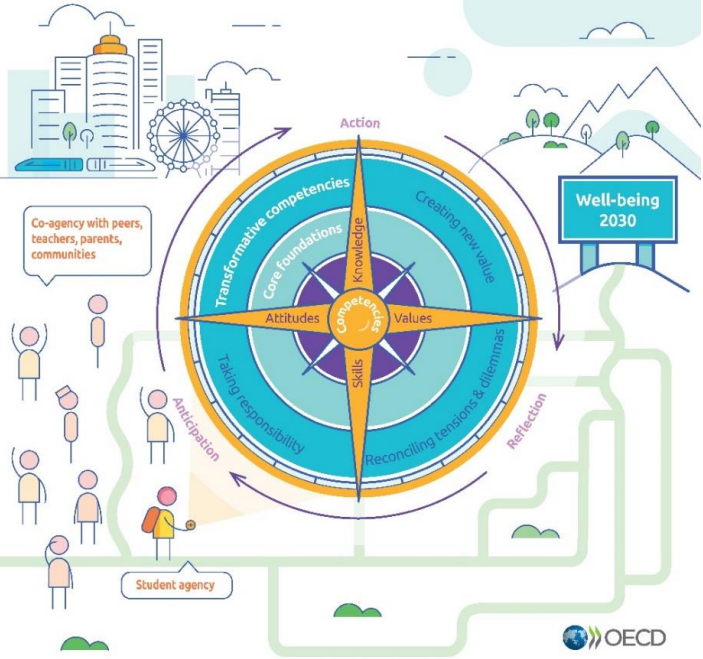- Opinion
Curriculum Reform: Seizing the Moment for Change—And How RM Compare Fits In

The conversation around curriculum reform is picking up pace across the UK and globally. From government reviews to international frameworks, there’s a growing recognition: our education system needs to evolve to meet the future. For those of us at RM Compare, this is a clarion call—both a challenge and an extraordinary opportunity to help shape the next era of learning.
Why Is Curriculum Reform Back on the Agenda?
There’s growing consensus that the current curriculum can feel overloaded, rigid, and often disconnected from the realities and passions of today’s young people. The APPG’s “Loss of the Love of Learning” report lays bare the risks of sticking with business-as-usual: narrowing engagement, increasing inequities, and quashing both student and teacher agency.
At the same time, the world is changing fast. To thrive, students need not just knowledge, but also skills, creativity, ethical judgement, and the confidence to navigate the unknown. Education policy is catching up—creating a pivotal moment to rethink both curriculum and assessment.
Learning from the Best: OECD 2030 and the “Learning Compass”
The OECD’s “Future of Education and Skills 2030” project offers a powerful north star. It urges countries to develop curricula that go beyond facts and rote learning, building “three transformative competencies”:
- Creating new value—encouraging innovation, entrepreneurship, and creative problem-solving
- Reconciling tensions and dilemmas—developing critical thinking and ethical judgement
- Taking responsibility—promoting well-being, collaboration, and citizenship
The OECD’s “Learning Compass” recognises that the purpose of education should be to empower learners as agents of their own lives and contributors to society. This vision is mirrored by calls in the APPG report to rekindle joy, connection, and real-world relevance in learning.
Assessment is part of this picture—because if we only measure what’s easy to test, we drive the wrong behaviours. The OECD calls for new tools that can evidence the full range of competencies and dispositions modern societies need.

Wales: A Case Study in Bold, Holistic Reform
Wales is proving that big, coherent curriculum reform isn’t just possible—it’s already happening. The new Curriculum for Wales is built on four purposes, aiming to produce learners who are:
- Ambitious, capable learners
- Enterprising, creative contributors
- Ethical, informed citizens
- Healthy, confident individuals
This vision isn’t just on paper—Welsh schools are rethinking what’s taught, how it’s taught, and crucially, how it’s assessed. RM Compare is proud to play a role here, supporting schools to:
- Assess complex, open-ended and creative work that doesn’t fit into tick-box marking
- Empower teacher professional judgement through collaborative, comparative assessment
- Make progress and learner voice more visible—so assessment helps drive improvement, not just rank order
The Welsh experience demonstrates that when assessment evolves with curriculum, we can unlock richer learning and engagement for all.
What About England? The DfE Review and What “Good” Could Look Like
England, too, is on a journey. The Department for Education’s curriculum review, led by Professor Becky Francis, is examining how the content, breadth, and assessment of the national curriculum can better meet the needs of diverse learners
Early signals suggest the review will recommend:
- Slimming down the curriculum for greater depth and fewer “mile wide, inch deep” trade-offs
- Ensuring all students, including the most disadvantaged and those with SEND, have access to a broad, ambitious, and relevant curriculum
- Creating varied pathways and balancing academic with creative and vocational routes
- Aligning assessment with the broader aims of the curriculum—so what’s valued in learning is what gets valued in measurement
If “good” curriculum reform is about trust, agency, inclusion, and real-world relevance, then assessment systems must be ready to support, not stifle, those aims.
How RM Compare Can Help
Moments of change require new tools. RM Compare’s adaptive comparative judgement model answers the call for:
- Richer, fairer assessment: Enabling teachers to value creativity, applied knowledge, and holistic skills—not just memorised facts
- Professional trust: Placing teachers at the heart of judgement and development, not just data entry
- Equity: Reducing the barriers that traditional exams create for too many learners
- Scalability: Providing practical, user-friendly ways to implement new policies at the whole-school and system level
Whether working with curriculum reformers in Wales, pilot projects in England, or ambitious schools everywhere, RM Compare is ideally placed to help make lasting, positive change real in classrooms.
